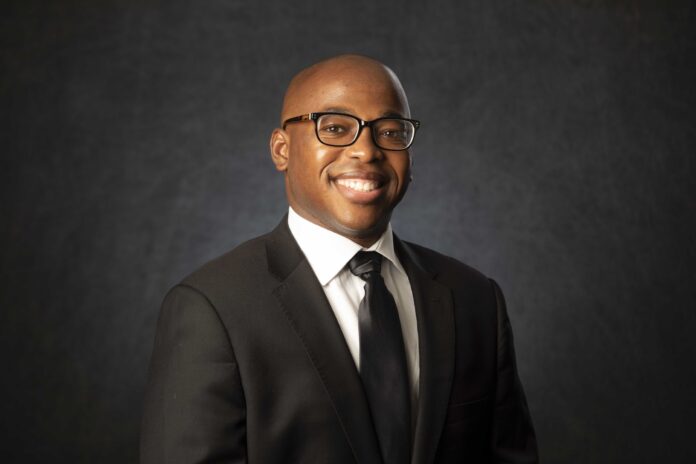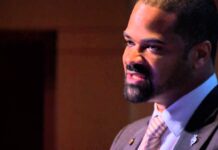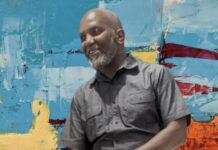In the tradition of scholar-advocates who use the law as both a mirror and a mechanism for social change, Randall K. Johnson J.D. stands at the intersection of teaching and justice. A law professor at the University of Missouri-Kansas City and civil rights advocate, Johnson has built his career on questioning how governments make decisions, and whether those decisions uphold the promise of equal treatment under the law. His journey—shaped by family, identity, and lived experience—reflects both the challenges and possibilities of American democracy.
How have your upbringing or early experiences shaped your commitment to equality and justice?
Johnson: Some of my earliest memories are of my maternal grandmother, who retired as a mid-level career servant with the U.S. Army Tank-Automotive Center and one of its private sector offshoots. She was a firm believer that government has the ability, in the words of [Nobel Prize-winning Indian economist} Amartya Sen, to increase the real freedoms people enjoy in society. Perhaps this belief arose from her conviction that her career was only possible because the federal civil service exam had been administered equally to everyone. There is justice in having rules that apply in the exact same way to all.
What was the pivotal moment when you knew law was more than a career?
Johnson: The filing of my recent civil rights lawsuit was the pivotal moment when I realized that law is not just a career, but a calling. The case arose out of the unlawful attempts by Minsky’s Pizza to single out Black customers for inferior treatment. One of the restaurant’s biggest mistakes was contacting a stranger at my job—Athletic Director Brandon Martin—in an attempt to pressure me into dropping the lawsuit. When that unlawful retaliation did not succeed, Minsky’s began working hand-in-glove with a local government to sweep everything under the rug. I was the right person at the right time, due to my legal training, to challenge them and ensure their questionable activities became part of the public record.
How has your personal identity informed the way you show up as both an advocate and law professor?
Johnson: My identity as a straight Black man, who had to fight for everything I achieved, informs my work every day. I know the hidden costs and double standards too often imposed on my demographic. That awareness drives me to remove barriers to full participation by exposing those inequities and showing how much they harm society as a whole.
The law is often described as both a shield and a sword. How do you see the law functioning in today’s society, particularly for marginalized communities?
Johnson: Law does function as both shield and sword. Government discretion, for example, cuts both ways. It can help some Black citizens if a decision-maker is sympathetic, but it also raises the risk that arbitrary and unequal treatment becomes the norm for those deemed unsympathetic.
What do you believe the legal system is getting right—and where is it falling short—in addressing systemic inequality?
Johnson: The U.S. legal system is strong in providing public goods like voting locations but weaker in applying neutral laws of general applicability, such as property taxes. It is important to acknowledge the successes while also calling for reforms. Doing so increases the likelihood that elected officials see advocates as working in good faith.
How do you navigate the tension between tradition in law and the need for progress and reform?
Johnson: I am a traditionalist in some ways, but not in others. I believe the legal rules in our federal constitution are mostly good and have served this country well. The real problem often lies not in the rules themselves, but in how some governments choose to interpret them.
What does advocacy look like in your daily practice?
Johnson: Advocacy, in the words of Stanley Calhoun, requires each of us “to be a star where we are.” In my daily life, advocacy means demanding that more governments live up to their promises. I carry out this work through research, teaching, and engaging with public officials.
How do you measure impact when it comes to the work you do in and outside the classroom?
Johnson: Much of my impact arises from research into the type, quality, and quantity of information governments use to make decisions. Over the last decade, my work has contributed to reforms in property tax appeals, public pension administration, and even the way cities issue parking tickets.
Describe an initiative, project, or case that reinforced your belief in the power of advocacy?
Johnson: One recent example was when the Illinois Supreme Court ruled that police departments have no legal right to control the content of citizen complaints about officers. This case arose from advocacy over a collective bargaining agreement that sought to give the Chicago Police Department such authority. The Court rightly held that the City of Chicago could not transfer rights it did not hold. That outcome reinforced my belief that advocacy can meaningfully shape the law.
What’s the greatest responsibility of a law professor beyond teaching the curriculum?
Johnson: The greatest responsibility is to know the law and clearly explain how it applies in practice. That responsibility can be met through teaching, writing, or litigation. Over the last twelve years, I have used all three methods in my work as a professor and advocate.
How do you prepare students to become not only skilled lawyers, but also ethical leaders and advocates?
Johnson: I underscore how ethics and morals inform daily legal practice. This preparation takes the form of detailed case studies and exercises that place students in ethical and moral dilemmas they may face in their careers. The goal is to help them understand how to navigate those challenges while adequately representing clients.
What advice do you give to young people of color entering the legal profession who may not see themselves represented at the highest levels?
Johnson: My advice is simple: learn the rules, and be your own advocate.
How do you define success at this stage of your career?
Johnson: Success is when governments follow their own rules because they know advocates will hold them accountable.
What role do you think law professors should play in public discourse—beyond the classroom?
Johnson: Law professors have a critical role in advancing society’s understanding of the law and its application. Active participation in public debate adds value by pointing out how legal rules protect everyone, creating certainty about how governments will treat citizens over time.
If you could change one misconception about law schools and the legal system, what would it be?
Johnson: That argumentation is everything. In reality, knowledge of legal rules is far more central.
What do you believe is the connection between law, leadership, and legacy?
Johnson: Law governs how people relate to each other in society. Leadership is how people influence each other in pursuit of shared goals. Legacy is the long-term impact of that leadership. The three are inseparable.
Where do you hope to see the conversation around equality and justice in the next decade?
Johnson: My hope is that the conversation expands beyond individual concerns and economics to reincorporate the idea of the common good.
What role do you envision for yourself as both an advocate and law professor in shaping that future?
Johnson: I see my role as helping more citizens participate meaningfully in society—through voting, lobbying, and volunteering.
If there is one message you want readers of The Network Journal to take away from your story, what would it be?
Johnson: My message is that legal rules are necessary and important, especially for Black Americans, because they limit arbitrary and capricious treatment by others in society.








